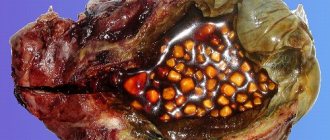If you find an error, please select a piece of text and press Ctrl+Enter.
Diarrhea is a common condition characterized by loose, watery stools. There are many potential causes of diarrhea, including infections, medications, and digestive problems.
In some cases, diarrhea may also occur after surgery.
In this article, we will explain why diarrhea may occur after surgery, as well as risk factors and treatment options.
Stages of development
Considering the situation before surgery, it should be noted that appendicitis goes through five stages in its development. The disease can appear as appendicitis:
- Catarrhal;
- Superficial, then phlegmonous;
- Phlegmonous-ulcerative, then gangrenous.
At the first stage there are no symptoms, the first hours the disease affects only the mucous membrane, without causing serious effects.
Abdominal pain occurs in the second stage, an acute symptom is observed in all patients, local internal bleeding occurs. The third phlegmonous stage creates serious risks to health and life, affecting all layers of the intestine. Diarrhea, vomiting, and nausea occur. Next, ulcers appear on the intestines, and the body loses its ability to resist the disease. It usually does not reach the gangrenous stage; in the modern world, people manage to get help before it occurs. The stage is characterized by rupture of necrotic tissues, pouring of purulent contents into the abdominal cavity. When pus is pouring out, providing assistance to a person is problematic; not all surgeons successfully cope with the task.
Features of diarrhea during the development of appendicitis
Diarrhea can accompany stage 1, the asymptomatic stage of the disease, as well as stages 2 and 3, when appendix tissue is involved in the inflammatory process.
Appendicitis with the usual location of the cecum
With the usual location of the appendix, appendicitis can be recognized by severe pain, loss of appetite, nausea, single diarrhea and vomiting. The patient's general condition is satisfactory, body temperature is within normal limits. As the pathological process progresses, nausea and abdominal pain increase, body temperature rises, and there is no diarrhea.
Retrocecal appendicitis
This species is characterized by an unusual location of the appendix. It can be localized behind the cecum, adjacent to the kidney or muscular system in the lumbar region.
In this case, the pain syndrome is migrating in nature. Nausea and vomiting are extremely rare. The peculiarity of this type of appendicitis is mushy diarrhea, as a result of irritation of the intestine by the caecum. With retrocecal appendicitis, diuresis disturbances are also possible along with diarrhea.
Pelvic appendicitis
In this case, the appendix is located in the small pelvis. Due to the non-physiological localization of the appendix, the clinical picture is pronounced. The pain syndrome covers the entire abdominal cavity and pelvis, urination becomes more frequent. Diarrhea with appendicitis is repeated, mushy consistency or watery. It is possible to separate clots and streaks of blood and mucus.
Pelvic appendicitis occurs more often in women and misleads doctors when making a diagnosis. Differential diagnosis of appendicitis, pathologies of the urinary system and intestinal infections is necessary.
Characteristic symptoms
The main symptom of appendicitis is pain. Aching dull sensations are constantly pursued, the pain does not go away. With any movement from sneezing to running, the pain intensifies. Initially, it is felt everywhere, then it is localized in the area of the appendage and remains there.
The temperature accompanies the inflammatory process without rising high. With appendicitis, the indicator does not exceed 37.5-38.5 degrees. The temperature may not rise. When the appendix ruptures, it increases sharply to critical levels.
A symptom of appendicitis is dry mouth, white coating on the tongue. The symptom is one-time vomiting, there may be diarrhea, but more often constipation occurs.
Features of diarrhea after appendicitis
Diarrhea after removal of appendicitis while following a special diet is considered normal and is associated with a large intake of liquid food. In this case, the patient does not experience discomfort, the number of bowel movements does not exceed 5 times a day, the temperature is within normal limits, and there is no nausea or vomiting.
However, if loose stools after appendicitis are accompanied by other symptoms, this may be a sign of other pathological processes in the body.
If diarrhea after surgical removal of the appendix lasts more than 3 days, this is a sign of serious pathologies, which should be reported to your doctor immediately.
Allergy to medications
As a rule, before surgery, the patient is obliged to warn surgeons and anesthesiologists about individual intolerance to drugs. If there is one, the patient’s medical history contains references to atopic dermatitis, bronchial asthma and other manifestations of allergies.
However, diarrhea after surgery may be associated with the development of specific immune sensitivity to the drugs administered for pain relief before surgery, as well as after the intervention to restore the body and prevent infection.
Allergies to medications include diarrhea after appendicitis surgery, which is accompanied by nausea and vomiting, severe abdominal pain and bloating. When passing stool, mucus and blood may be found.
In addition, allergies can cause rhinitis, cough, swelling of the mucous membranes of the nasal cavity and oropharynx, rashes on the dermis and mucous membranes, itching, hyperthermia of low-grade marks, aches and muscle pain.
Dysbacteriosis
Intestinal dysbiosis develops as a result of an imbalance of the natural intestinal microflora against the background of the growth of pathogenic microorganisms and a decrease in the number of beneficial lactobacilli.
Dysbacteriosis after successful surgical treatment of inflammation of appendicitis is accompanied by diarrhea or constipation, which can also alternate. Feces have:
- sour or putrid odor;
- yellow, green or yellow-green color;
- mushy consistency interspersed with mucus.
In addition, the patient may complain of nausea, poor appetite, bloating and heartburn.
Antibiotic-associated diarrhea
Diarrhea occurs after surgical removal of the appendix of the cecum as a result of taking or intravenous administration of antibacterial drugs that suppress the activity of not only pathogenic microorganisms, but also beneficial bacteria. This in turn disrupts the balance of the microflora of the digestive organs.
Antibiotic-associated diarrhea is a type of intestinal dysbiosis. Accompanied by the development of diarrhea with impurities of blood and mucus. The frequency of bowel movements reaches 30 times a day. Along with diarrhea, flatulence, intestinal pain, nausea, vomiting, weakness and fever may occur.
Frequent bowel movements lead to dehydration and are dangerous to the health and life of the patient.
Diarrhea after IV
Diarrhea after a drip is associated with intolerance to drugs administered intravenously. In the postoperative period, antibacterial drugs are infused intravenously to stop and prevent the development of the inflammatory process. Antibiotics, when entering the body, fight not only pathogenic microflora, but also suppress the activity of lactobacilli, which leads to imbalance and diarrhea.
After surgery, rehydration solutions are also administered intravenously to help replenish the deficiency of water and electrolytes. A large dosage of the drug leads to an increase in fluid in the body, which can cause dilution of the stool - diarrhea occurs.
Diarrhea after anesthesia
Diarrhea occurs after anesthesia, which is associated with individual intolerance to the drug that is used for pain relief in the preoperative period. In this case, diarrhea is a manifestation of an allergy.
Diarrhea and vomiting after anesthesia after removal of appendicitis may indicate the development of an inflammatory process in the abdominal cavity or be the result of stress that the body suffered during the operation.
After operation
Before surgery, constipation is typical; after removal of the inflamed organ, diarrhea becomes a common ailment. Diarrhea after appendicitis removal occurs often; doctors give special recommendations that exclude this problem; they must be followed.
Antibacterial therapy, which is often carried out as prescribed, helps prevent diarrhea after surgery. A special diet prescribed by a doctor is important - the load is removed from the body, the gastrointestinal tract is not overloaded, and recovery is faster. When prescribing antibiotics, drugs that restore intestinal microflora are offered. Diarrhea can follow after taking antibiotics; to counteract it, special drugs with lacto- and bifidobacteria are prescribed.
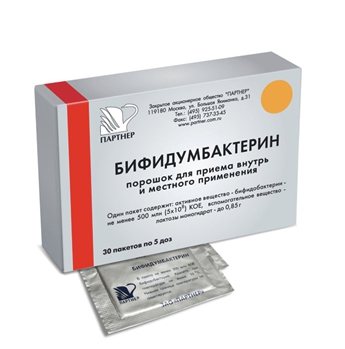
Where does diarrhea come from?
Diarrhea occurs for reasons independent of surgery. Food poisoning, helminths, allergies, stress, stomach diseases can lead to diarrhea. It is advisable to pay attention to your well-being and identify the causes of intestinal disorders. Medical intervention will allow you to find the cause of the disease and eliminate the disorder.
How to prevent it?
To eliminate the risk of diarrhea after surgery, you should carefully follow your doctor's recommendations. It is important to adhere to the prescribed diet, which will be based on broths and porridge. Mashed potatoes, kefir, and lean meat are recommended. You need to drink a lot of water; stewed foods in your diet are beneficial.
Hygiene standards are important and it is advisable to observe them. Hand washing and clean dishes are the minimum that protects against many risks. Must be followed before and after surgery. If a symptom occurs, you should consult a doctor immediately. Any disturbances in the functioning of the gastrointestinal tract after surgery become a reason to consult a doctor.
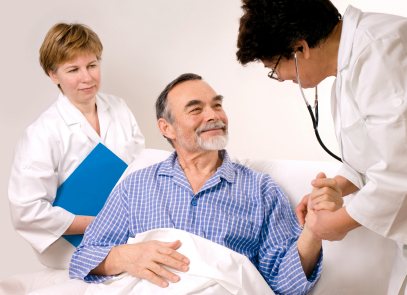
Surgery is stress, after which the body needs to learn to work in a new way and recover. Complications and difficulties in treatment manifest themselves in different ways, sometimes as dysbacteriosis.
It is worth knowing that the first three days after surgery, diarrhea is considered a normal symptom for an adult; this is how the body reacts to what happened. The problem is associated with the operation and the antibiotics received. After removal of the appendage, the intestines are weakened, there is a risk of infection by viruses, and diarrhea becomes evidence of their activity. Diarrhea can be caused by anesthesia, fermentation problems, or appendiceal infiltrate that has entered the intestines. This is normal.
At-Home Treatment Options
Here are a few things you can do at home to relieve diarrhea symptoms:
- Drink plenty of fluids (water, juices or broths).
- Choose foods that are easier to digest, such as rice and mashed potatoes.
- Avoid foods high in fiber, fat, or dairy. Also try to stay away from sour, spicy or very sweet foods.
- Avoid drinks that contain alcohol and caffeine.
- Relax in a warm bath to relieve abdominal or rectal discomfort.
- Try taking probiotics to boost the levels of beneficial bacteria in your digestive tract.
- Use over-the-counter medications with caution. In some cases, medications such as bismuth subsalicylate or loperamide may help relieve symptoms. However, if an infection is causing your symptoms, these types of medications will not help and may be potentially dangerous.
If diarrhea lasts more than two days or you have a child whose diarrhea lasts more than 24 hours, get medical help right away.
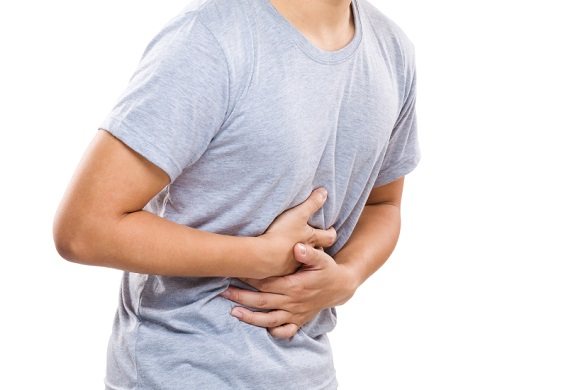
When does it stop being just a symptom?
Seeing a doctor is necessary when diarrhea lasts more than three days after surgery.
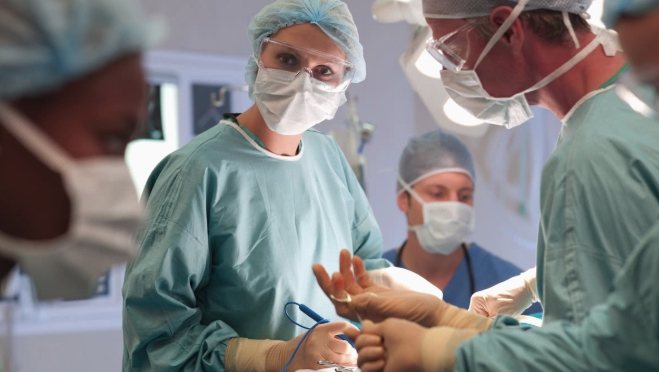
What is needed is diagnostics and an accurate diagnosis, after which a prescribed course of treatment is required to resolve the problem. Diarrhea accompanied by blood, diarrhea with fever, attacks of weakness, and other effects are a reason to pay attention and call a doctor immediately.
Diarrhea after appendicitis in a child is an alarming sign; the help of a doctor is also in demand. Severe diarrhea stimulates dehydration, it is important to maintain a drinking regime and provide the body with the necessary moisture.
Diarrhea with appendicitis is a rare occurrence, characteristic of a serious stage of the disease, emphasizing the need for urgent surgery. In the postoperative course, the symptom is normal for the first three days; further manifestations signal danger and require taking appropriate measures and contacting doctors.
Against the background of pronounced, dangerous symptoms, the advisability of seeing a doctor is emphasized - the situation is dangerous, with the need for emergency treatment, with the risk of death.
Treatment
If you are seeking medical care for a serious bout of diarrhea, your doctor will first take your medical history and perform a physical examination.
The doctor will ask you about your symptoms and how long you have had them. They typically also ask about any recent surgeries and underlying health conditions.
In addition to a physical exam, your doctor may order certain tests to try to determine the cause of your diarrhea. This may include a stool sample, blood tests, a CT scan, or possibly an endoscopy.
Below are some ways to treat your condition:
- Rehydration. Diarrhea can cause loss of fluids and electrolytes, so part of the treatment plan will likely focus on replacing them. If you cannot keep down fluids, you may receive them intravenously.
- Antibiotics. If bacteria is causing an infection that is causing you diarrhea, you may be able to get antibiotics to treat the infection.
- Corrective medications. Some medications may cause diarrhea. If you take one of these, your doctor may adjust your dosage or switch you to another medicine.
- Treatment of the underlying condition. If your symptoms are the cause, special medications or possibly surgery may be recommended.

Treatment of chronic diarrhea
If you have chronic diarrhea after surgery, your doctor may start by prescribing medications and recommending dietary changes to control your symptoms until your body adjusts.
Once your body reaches a new balance, you can stop taking the medications and get rid of the diarrhea.
In other cases, you may need ongoing or even lifelong use of medications to control or minimize episodes of diarrhea.
If you find an error, please select a piece of text and press Ctrl+Enter.
The appearance of diarrhea after using painkillers
One of the most common causes of diarrhea after anesthesia is the body’s individual reaction to certain components of the drug. If you have an intolerance to the active substance, in addition to loose stools, other symptoms may also cause concern:
- attacks of nausea or vomiting;
- general malaise;
- headache;
- discomfort in the abdominal area.
Usually, unpleasant symptoms go away on their own after a few days. If you have to undergo long-term treatment with regular use of painkillers (which happens during dental treatment), it is better to report unpleasant symptoms to your doctor. The specialist should prescribe a painkiller with a different composition - this will avoid problems in the future.
